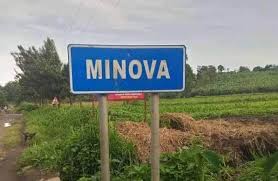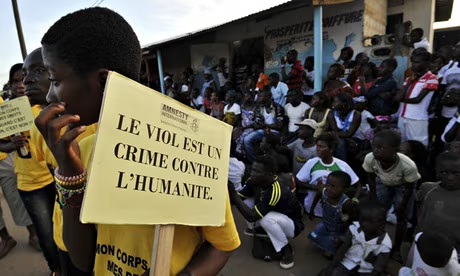In human rights cases and administrative law, the first legal stumbling block an applicant faces is whether or not they have ‘standing’ to bring a claim to court. If they are not allowed to bring the claim, it will not be heard. It is therefore an essential element of procedural law that has a profound effect on the substantive development of law.
Most Commonwealth systems have adopted the test of ‘sufficient interest’ in interpreting locus standi. However, in some jurisdictions, this test has been interpreted to mean that only those who have a ‘personal right’. This restricts access to justice and therefore, accountability of government in several ways:
- greatly reduces the number of people eligible to bring action against the government;
- creates a reliance on the resources, financial and professional, of a few, or even a single, person, to bring an action to court. This is always a burden, even where a system of legal aid is functioning;
- the person with standing has to actually want to bring the action. This can give rise to intimidation or gifts or financial incentives;
- an alleged breach has to have taken place, meaning that no actions can be brought preventing someone’s rights being infringed.
This results in fewer cases, less incentive for good administration, weak constitutional protections and is also unsound economic policy since lack of government accountability results in inefficiencies and poor administration that cost taxpayers dearly.
Common law systems have in recent years relaxed the test of ‘sufficient interest’ and introduced numerous ‘types’ of standing:
- to relatives of the aggrieved, namely ‘surrogate standing’;
- to an association the aggrieved is a member or is representing a number of claimants, namely ‘associational standing or class action’;
- standing based on a public right or interest namely ‘public interest standing’;
- its most relaxed form, ‘actio popularis’ where the public interest is based merely on the fact that the case concerns a constitutional issue.
It encourages good administrative practices and the integration of constitutional considerations and policy-making means, in the long run, fewer cases at the doors of the Judiciary. Further, there has been a greater expansion of the American law tradition of ‘amicus curiae’ or ‘public interest intervention,’ as an economical way of dealing with numerous effects of a decision without bringing multiple cases. It is also an efficient preventive mechanism.
On the 8th and 9th of October 2001, IHRDA organised a Judicial Colloquium to discuss these changes witnessed in recent years to the rules of locus standi and draw legal practitioners’ attention to the importance of this procedural aspect of human rights law. It was attended by the entire Judiciary of The Gambia and Gambia Bar Association (GBA), and interested persons from Kenya, Tanzania, Nigeria, and Sudan.
The panellists included a rich representation from the benches of African courts, namely: Justice Hassan Jallow (Supreme Court of The Gambia), Justice K.E. Amua-Seki (Court of Appeal of Ghana), Justice Niki Tobi (Court of Appeal of Nigeria), Justice George Gwanmesia (Supreme Court of Cameroon) and Justice Mam Yassin Sey (High Court of The Gambia).
Topics covered
- The Importance of locus standi
- Legal Accountability and locus standi
- Locus standi and Access to Justice
- Unrestrictive Standing and Access to Justice
- Smooth Administration of Justice or Barriers to Access to the Court? The UK Experience [Case Note: R v. Inspectorate of Pollution and another, ex parte Greenpeace Ltd (no 2) (1994)]
- Locus standi and Administrative Justice – The Gambian Experience [Case Note: UDP & 2 Ors vs. The Attorney General SCCS No. 3/2000]
- Locus standi in Ghana [Case Note: Tuffour v. Attorney-General (1980) GLR 637 CA]
- Locus standi in Nigerian Law and Practice [Case Note: Senator Adesanya v. President, Federal Republic of Nigeria and Anor [1981] 2 NCLR]
- Cameroon Practice on Locus standi in Administrative Justice
- Locus standi in Human Rights Enforcement
- Locus standi in Human Rights Cases: Ghanaian Practice [Case note: Sam (No.2) v. Attorney-General (2000); Tuffour v. Attorney-General; Edusei v. Attorney-General]
- Locus standi in Nigerian Law and Practice [Case Note: Senator Adesanya v. President, Federal Republic of Nigeria and Anor [1981] 2 NCLR; Olawoyin v. Attorney-General of the Northern Region [1961] 1 All NR; Chief Fawehinmi v. Col. Akilu and another: In Re Oduneye [1987] 4 NWLR]
- Locus standi in Human Rights Cases in The Gambia [Case Note: Janneh v. Director of National Intelligence Agency (1999)]
- Human Rights Enforcement in Cameroon [Case Note: Kolle Edouard v. The People (Habeas Corpus)]
- Recent Developments in Locus standi in The Gambia
- Recent Developments in Locus standi in Nigeria [Case Note: NNPC v. Fawenhinmi (1998) 7 NWLR]
- Recent Developments in Locus standi in South Africa [Case Note: Ngxuza v. Department of State for Welfare EasternCape Provincial Government (2001); Mohammed v. President of the Republic of South Africa (2001)]
- Recent Developments in locus standi in the United Kingdom





